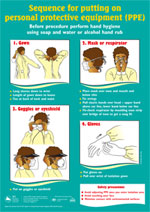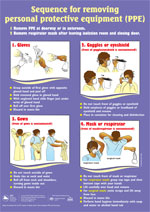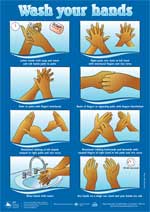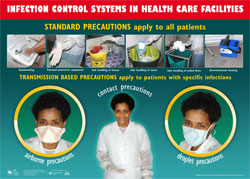PICNet
The Pacific Infection Prevention and Control Network (PICNet) was officially launched at a Meeting and Training Workshop on Infection Control and Prevention, in February 2006, Lautoka, Fiji Islands. It is to be used as a tool for communication and sharing of experiences, particularly how to be innovative with limited resources to ensure patient and health care worker safety from infectious diseases.
Background
From the First Regional EpiNet Workshop in Fiji Islands, 2003, it was evident that the lessons learnt from the SARS outbreak indicated a need to address infection control issues not only at a facility or national level but also at a regional level. Infection control, particularly in health care facilities, was identified as a critical element in interrupting transmission of not only SARS but also other priority infectious diseases in the region. Communication, accessibility of expertise and technical advice are recognized as areas in need of improvement to facilitate infection control response to infectious disease threats.
Subsequent to this a recommendation of the Second Regional EpiNet Workshop in New Caledonia, 2004 was, “To review and improve on the infection control measures in PICTs by establishing and formalizing the Pacific regional infection control network under the umbrella of the PPHSN”.
Key resources
Guidelines
PPHSN Infection Prevention and Control Guidelines, 2021
Posters
A3 Poster_1_Contact Precautions_final
A3 Poster_2_Droplet Precautions_final
A3 Poster_3_Airborne Precautions_final
A3 Poster_4_Contact and Droplet Precautions_final
Membership
Core members
All health professionals with interest in infection control with one national focal point for each SPC member country or territory.
Allied members
• Health professionals with interest in infection control from Australia and New Zealand
• International organizations: WHO, SPC
• Training institutions, including Schools of Nursing, Schools of Medicine, Schools of Oral Health
• Donors
Activities
• Support and advocacy for capacity building for infection control professionals (ICPs).
• Strengthen institutional linkages with regional and national expert bodies.
Contact
Focal Point of the PPHSN Coordinating Body
Email: [email protected]




